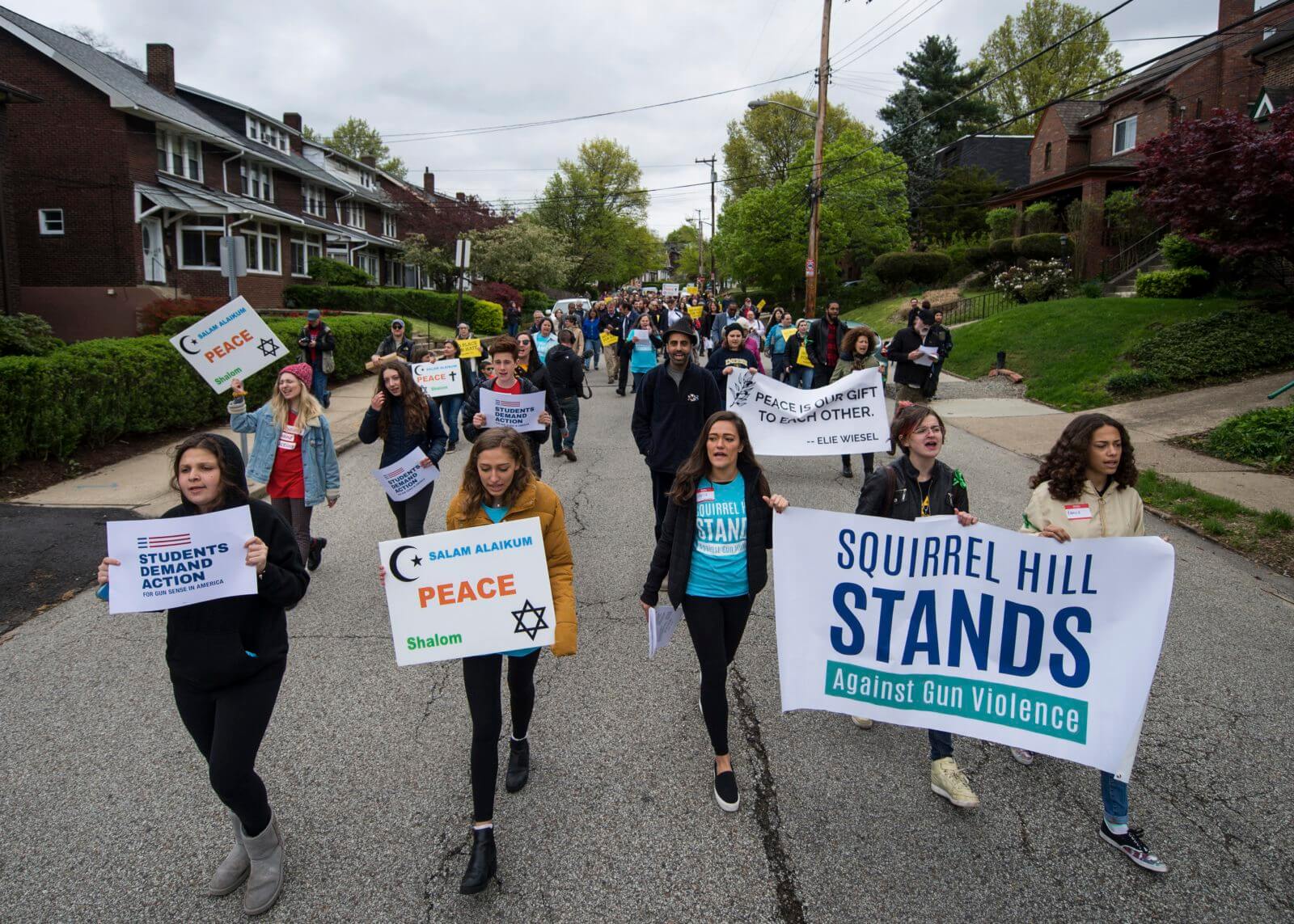

By DEBRA ERDLEY
The attack at Tree of Life synagogue hit close to home for state Rep. Dan Frankel.
“I grew up in this community,” the 62-year-old Democrat said. “I went to Tree of Life for bar mitzvah.”
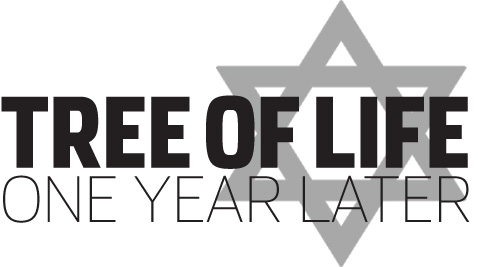 Frankel’s district includes Squirrel Hill. He lives four blocks from the synagogue that suffered the devastating loss of 11 worshippers from three congregations.
Frankel’s district includes Squirrel Hill. He lives four blocks from the synagogue that suffered the devastating loss of 11 worshippers from three congregations.
Prior to joining the Legislature in 1999, Frankel chaired the Pennsylvania Jewish Coalition and represented Jewish Federations across the state in Harrisburg where he worked with state lawmakers to secure funding for nonprofits that benefitted the vulnerable individuals.
He was deeply touched when colleagues in the Legislature reached out to him in the aftermath of the Oct. 27 attack.
“A number of them, including my Republican colleagues, came with me to Shabbat the Friday after the shooting. It was really helpful to me personally,” he said. On April 10, a joint session of the Legislature had memorial services with survivors and community leaders from Pittsburgh. “It was one of the most moving days of my 21 years in the Legislature.”
Frankel decided to focus on introducing a package of bills to enhance the state’s hate crime law. He has been working on the precise wording of the measures and reaching out to stakeholders for months.
“We think this would be a meaningful reaction to what happened in Squirrel Hill on Oct. 27. … I’ve been working with Senator (Jay) Costa and Speaker (Mike) Turzai, to craft language we could agree on and move forward. We’ve heard from the Sikh community, the Catholic community and reached out to the Muslim community,” Frankel said.
But with Democrats in the minority in the state House and Senate, even Frankel — a well-liked lawmaker known for building consensus — hasn’t been able to guarantee such a package will pass the deeply divided Legislature.
He would like to feel confident that when the bills are introduced, they will be approved and land on Gov. Tom Wolf’s desk in short order.
Generally speaking, the bills would increase the maximum criminal and civil fines for hate crimes from $500 to as much as $15,000; require those convicted of hate crimes to attend diversity training; establish reporting systems for high schools and universities to report hate crimes; beef up police training on hate crimes and add LBGTQ and disabled individuals to the groups protected under the state’s hate crimes law.
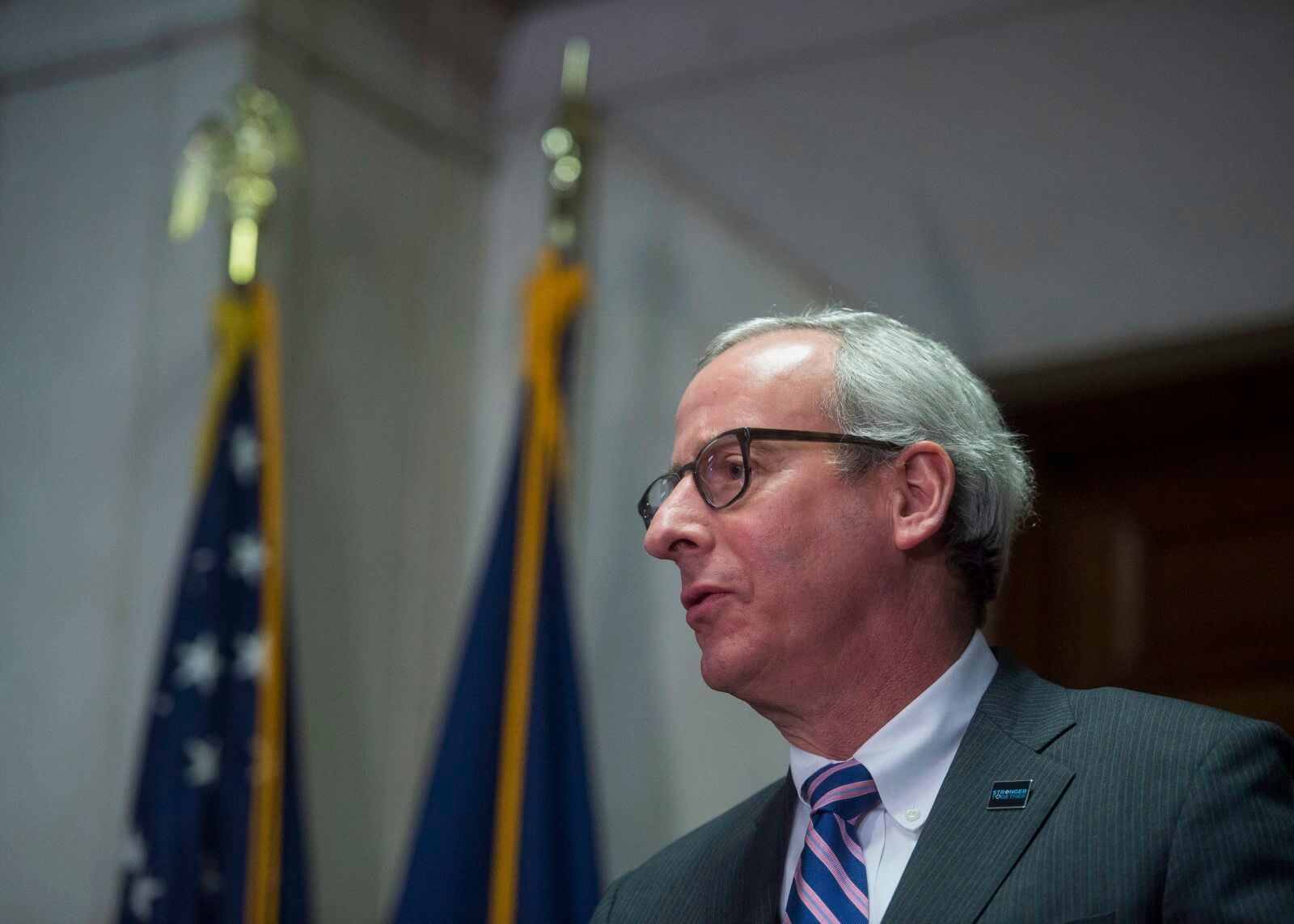
Frankel said Turzai, a Republican from Marshall Township, seemed supportive of his goals.
Turzai, who commands the Republican majority in the House, acknowledged that the Tree of Life attack was indeed a hate crime. “These beautiful victims were murdered because of their religious and cultural identities as Jewish. Such hate is intolerable. Anti-Semitism is wrong. We condemn it,” he said.
He even endorsed several of Frankel’s planks.
“Police training, higher education awareness and ‘Safe to Say’ programs should educate our first responders and citizens to be able to see such hate, to call that hate out and to stop that hate and the actions that come from it,” he wrote in an email.
But Turzai declined further comment.
Like Frankel, Costa, the Senate minority leader, also grew up in Squirrel Hill and represents the area in the Senate. He would like to see leadership of the four House and Senate caucuses support the hate crime measures. He said enhanced gun regulations including extreme-risk protection orders that would allow the courts to seize the weapons of individuals deemed a danger to themselves and others, and universal background checks on gun purchases, also should be on the table.
“They should go forward in tandem, but we need all four caucuses on board,” Costa said. He said there seems to be bipartisan support in the Senate for extreme risk and universal background checks.
However, just last month, as the state Senate was gearing up for hearings on gun safety, the state House Judiciary Committee passed a measure permitting out-of-state organizations to sue and recover damages from municipalities that attempt to adopt their own gun safety regulations and a second proposal making it easier to carry a firearm in Pennsylvania.
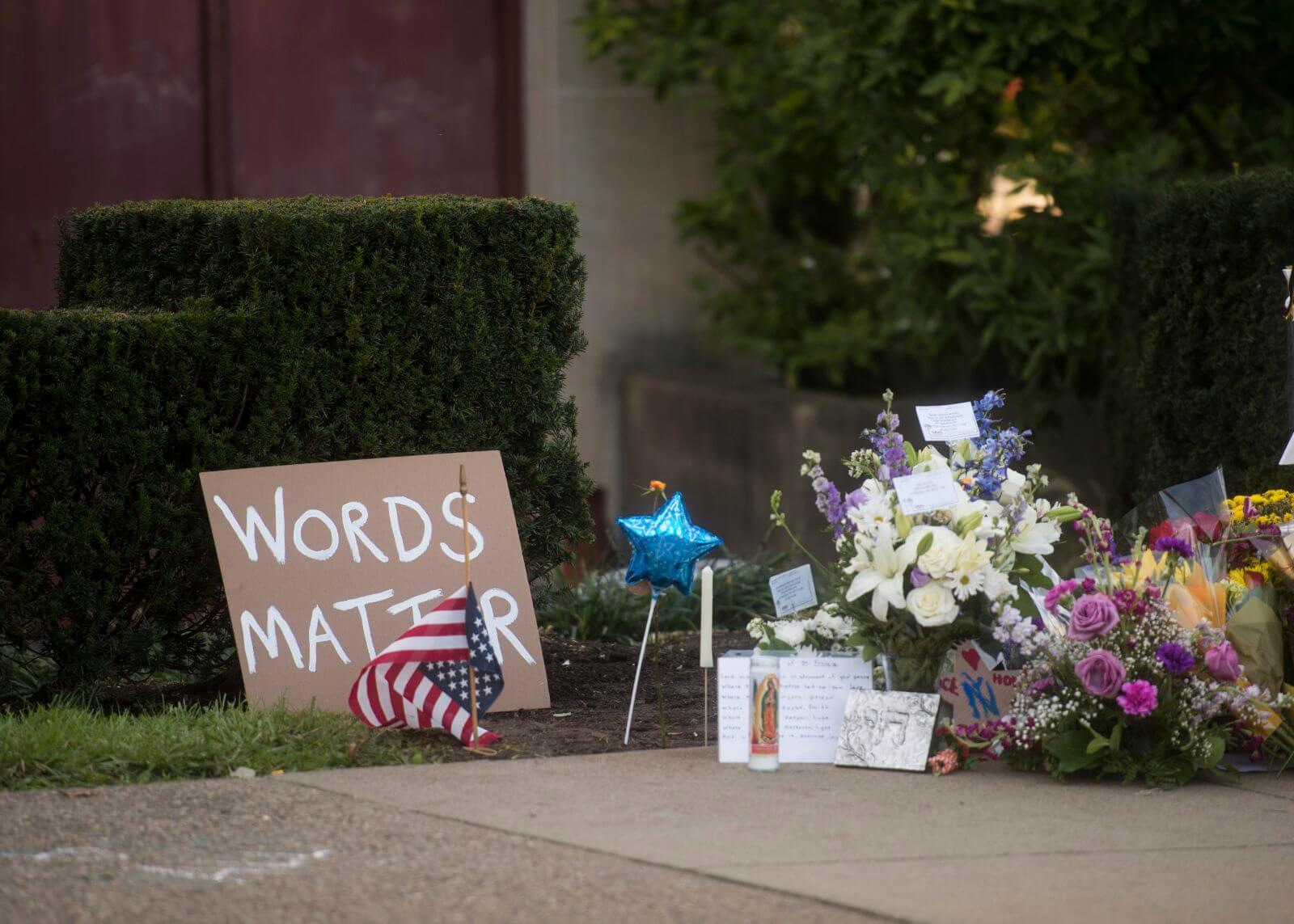
State Rep. Rob Kauffman, a Chambersburg Republican who chairs the committee, then announced that no extreme-risk law would be voted out of committee as long as he was chairman.
Kauffman declined to be interviewed.
Nico Bocour, state legislative director at the Giffords Law Center to Prevent Gun Violence, said Kauffman’s stand flies in the face of an emerging public conversation on gun violence and hate crimes. She said 17 states and the District of Columbia have enacted extreme-risk laws, most of them in the last two years.
RELATED: One year later: The path to recovery after the Tree of Life attack
“And in California, if someone is convicted of hate crimes, they are prohibited from owning a firearm for 10 years. We are going to continue to push that conversation from our end. Now is the time for states to make firearms not available to those who commit violent hate crimes,” Bocour said.
Shira Goodman, of Cease Fire PA, suspects lawmakers who oppose extreme-risk laws are in a dwindling minority.
“We should be ashamed that no one was calling for a special session after Tree of Life. The fact is, if either of these bills (extreme-risk or universal background checks) ever got to the floor of either chamber, I think they’d pass,” Goodman said.
Frankel, who co-founded the PA Safe Caucus 20 years ago and has promoted “common-sense gun laws” ever since, was disappointed, but not surprised at what happened in the House.
He learned long ago that moving firearms legislation in Pennsylvania is a herculean task.
For now, he continues to work meticulously on the language he hopes will see his hate crime enhancements through the Legislature.
“I want to prioritize the doable,” he said.
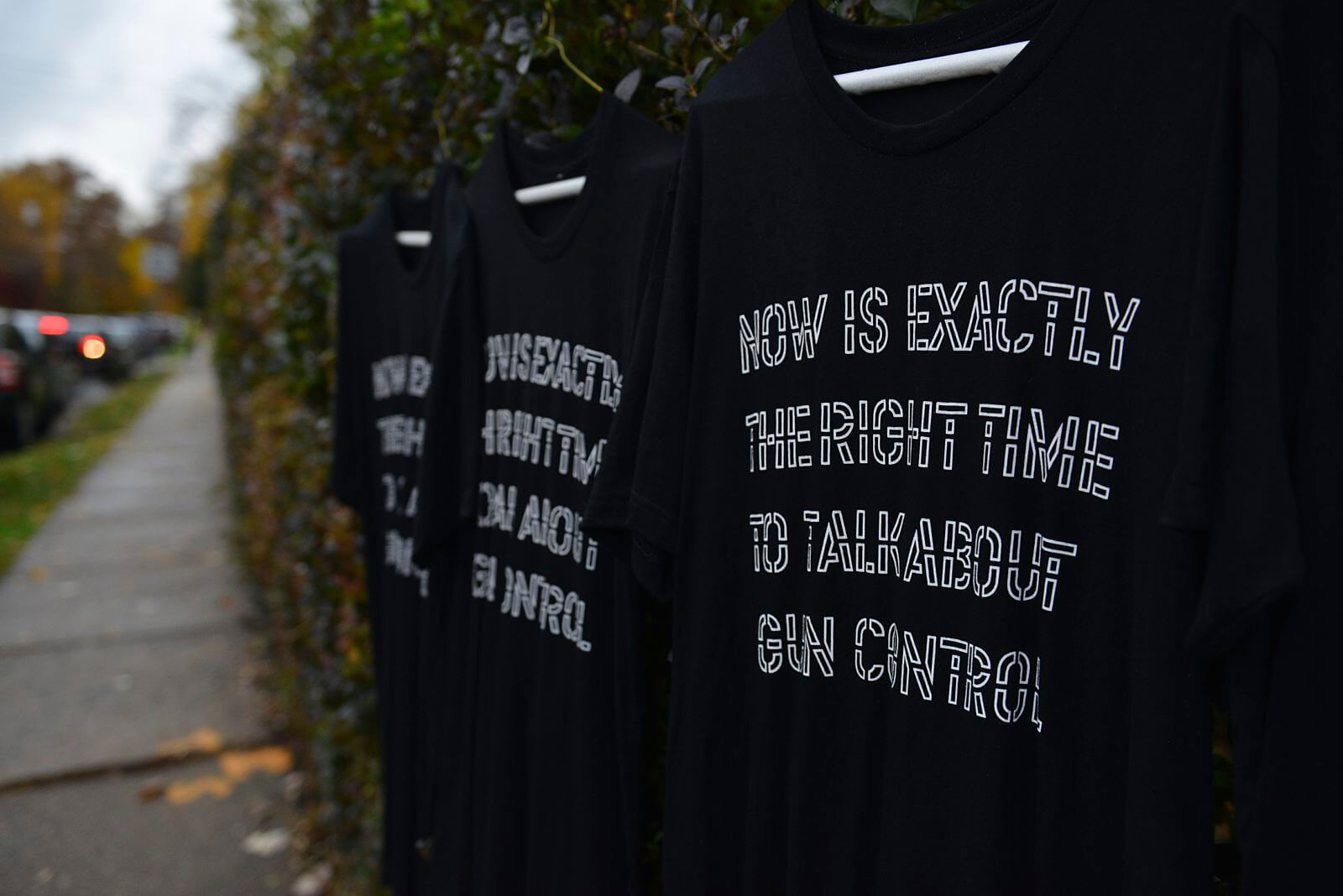
Frankel can’t forget the morning of Oct. 27, 2018.
At precisely 10 a.m. that morning, less than five minutes after gunman Robert Bowers entered the synagogue, Frankel said he was driving past Tree of Life on Wilkins Avenue. He turned onto Shady Avenue, parked two blocks away and walked into the house where he was to meet with campaign workers who planned to canvass the neighborhood.
As he turned into the house, he saw first responders flying down the street, lights flashing, sirens blaring. Within minutes, the neighborhood was on lockdown.
Frankel said first responders later escorted him to the police staging area on Murray Avenue.
He waited there with Michele Rosenthal whose brothers, David and Cecil, were among the early worshippers preparing for services at Tree of Life that day. They would learn that the two brothers were among the dead.
Nearly a year later, in early October, he was still working with stakeholders, tweaking the language in the hate crimes package and waiting for feedback.
“These were acts of violence combined with acts of hate,” Frankel said. “I’m very, very hopeful we’re going to be able to this. My dream would have been to have this signed into law by Oct. 27.”